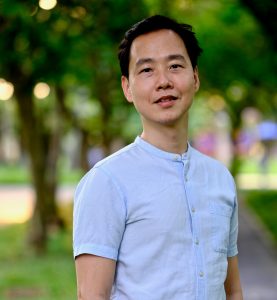Young Children’s Voices in Mathematical Problem Solving
Contributed by Dr Ho Siew Yin and Sng Wei Qin Abbie, from NTUC First Campus, for SingTeach Virtual […]
Read More

Guest Editor Dr Michael Tan from the Office of Education Research at NIE
Being educators, we are constantly surrounded by young people whose potentials are unforeseeable. As a result, we embrace change, are highly adaptable and always celebrate the new despite the challenges that come with them.
However, we should also remind ourselves to take a step back every once in a while to look at and understand whether these changes are actually improvements. As we welcome the new, we should also remember not to get overly distracted by “more, faster, cheaper”, and ignore truth, beauty and wisdom. And so it is with Science, Technology, Engineering, Mathematics (STEM) education – with the proliferation of shiny new technologies, with new artefacts, new furniture, new paint – it may be useful for us is to take a brief respite from the busyness and think about what we are doing.
Yes, STEM is a future for education. But we must not forget the lessons we have learnt from the past. Incorporating ICT tools in education went from forgettable attempts in the earlier days till today’s better examples. Today, few of us can consider not using some form of ICT tool in our teaching. The recent interesting times of extended Home-Based Learning has made streaming stars of all of us. Crucially, we should remember that “schools” and “ICT tools” no longer feel like a strange juxtaposition like it did in the past.
If we think about things we take for granted today, can we imagine how school might be different in the future if we continue on our current tentative steps forward? Would schools improve if we remove disciplinary silos (in favour of inter- and trans-disciplinarity), recitation style assessments (in favour of performance-based assessments) and industrial logic (in favour of wisdom guiding educational decisions)?
If we are to be truly future-centred, we really should widen our imagination to consider paths not currently taken. Yes, not everyone will be ready. Yes, few of us are even sure we know what we are doing. Yes, there is much work to be done, but that is precisely why we signed up for this job, isn’t it?
Dr Michael Tan
Research Scientist
Office of Education Research